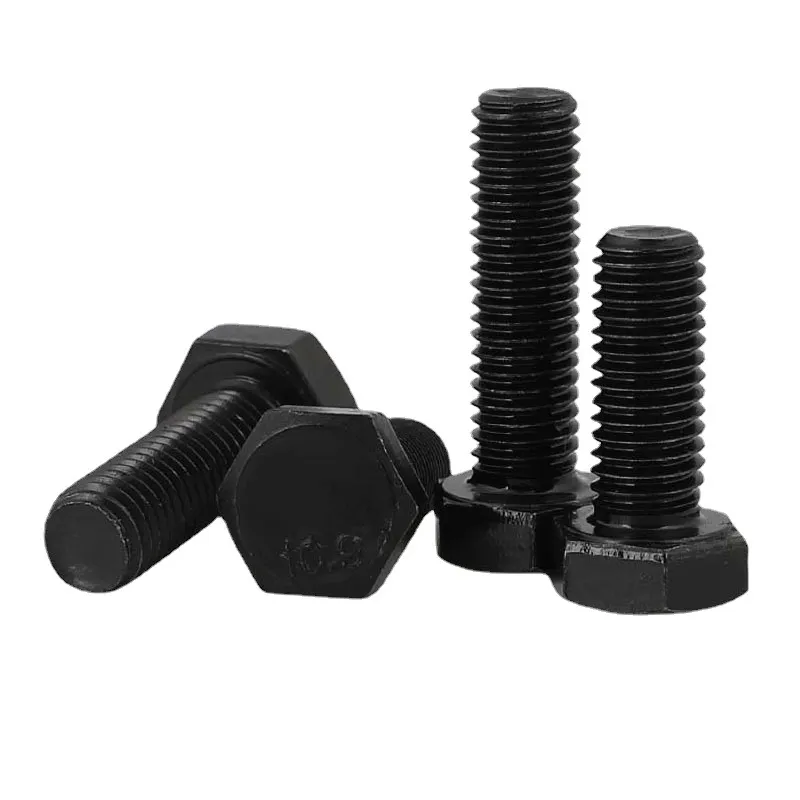

High-Strength M12 Stud Bolt for Reliable Industrial Applications and Structural Support
Sep . 26, 2024 00:05 Back to list
High-Strength M12 Stud Bolt for Reliable Industrial Applications and Structural Support
Understanding M12 Stud Bolts Essential Components in Engineering and Construction
M12 stud bolts are a critical component in various engineering and construction applications. These fasteners are known for their versatility and strength, making them ideal for a wide range of uses in fields such as automotive, aerospace, and structural engineering. In this article, we will explore the characteristics, applications, and advantages of M12 stud bolts.
What is an M12 Stud Bolt?
An M12 stud bolt is a type of fastener that has a metric diameter of 12 millimeters. It features threads on both ends and is typically used in conjunction with nuts to secure two or more components together. The length of the stud can vary depending on specific requirements, ranging from short stubs to longer bolts for greater reach.
Made from high-strength materials such as carbon steel, stainless steel, or alloy steel, M12 stud bolts are designed to withstand significant loads and stresses. The grade and material used in the manufacturing process determine the bolt's tensile strength and overall durability.
Applications of M12 Stud Bolts
M12 stud bolts are widely used across various industries. In construction, they are often employed in securing structural frameworks, machinery, and heavy equipment. Their robust nature allows them to hold large components tightly together, ensuring stability and safety in construction projects.
In the automotive industry, M12 stud bolts play an essential role in assembling engine components, suspension systems, and other critical parts of vehicles. Their reliability is crucial as any failure in these fasteners could lead to severe safety hazards.
m12 stud bolt

Additionally, M12 stud bolts find applications in the oil and gas industry for connecting flanges and managing pipeline connections. Their ability to withstand harsh environmental conditions and corrosive substances makes them a preferred choice in such demanding settings.
Advantages of M12 Stud Bolts
One of the main advantages of using M12 stud bolts is their ease of installation. The dual-thread design allows for quick fastening, reducing labor time during assembly. Moreover, they provide a strong grip and minimize the risk of loosening over time, which is particularly important in high-vibration environments.
Another benefit is their adaptability. M12 stud bolts can be used in various applications, allowing engineers and constructors to standardize fasteners across different projects. This standardization leads to cost savings and improved efficiency in procurement and inventory management.
Lastly, the availability of different materials and grades means that M12 stud bolts can be customized to meet specific requirements, ensuring optimal performance under varying conditions and loads.
Conclusion
In conclusion, M12 stud bolts are indispensable fasteners in modern engineering and construction. Their strength, versatility, and ease of use make them a reliable choice for securing components in various applications. As industries continue to evolve, the importance of robust fasteners like M12 stud bolts will only increase, underscoring their role in ensuring safety and integrity in engineering designs.
Latest news
-
Hot Dip Galvanized Bolts-About LongZe|High Strength, Corrosion Resistance
NewsJul.30,2025
-
High-Strength Hot Dip Galvanized Bolts - Hebei Longze | Corrosion Resistance, Customization
NewsJul.30,2025
-
Hot Dip Galvanized Bolts-Hebei Longze|Corrosion Resistance&High Strength
NewsJul.30,2025
-
High-Strength Hot-Dip Galvanized Bolts-Hebei Longze|Corrosion Resistance&High Strength
NewsJul.30,2025
-
Hot Dip Galvanized Bolts-Hebei Longze|Corrosion Resistance&High Strength
NewsJul.30,2025
-
Hot Dip Galvanized Bolts - Hebei Longze | Corrosion Resistance, High Strength
NewsJul.30,2025

